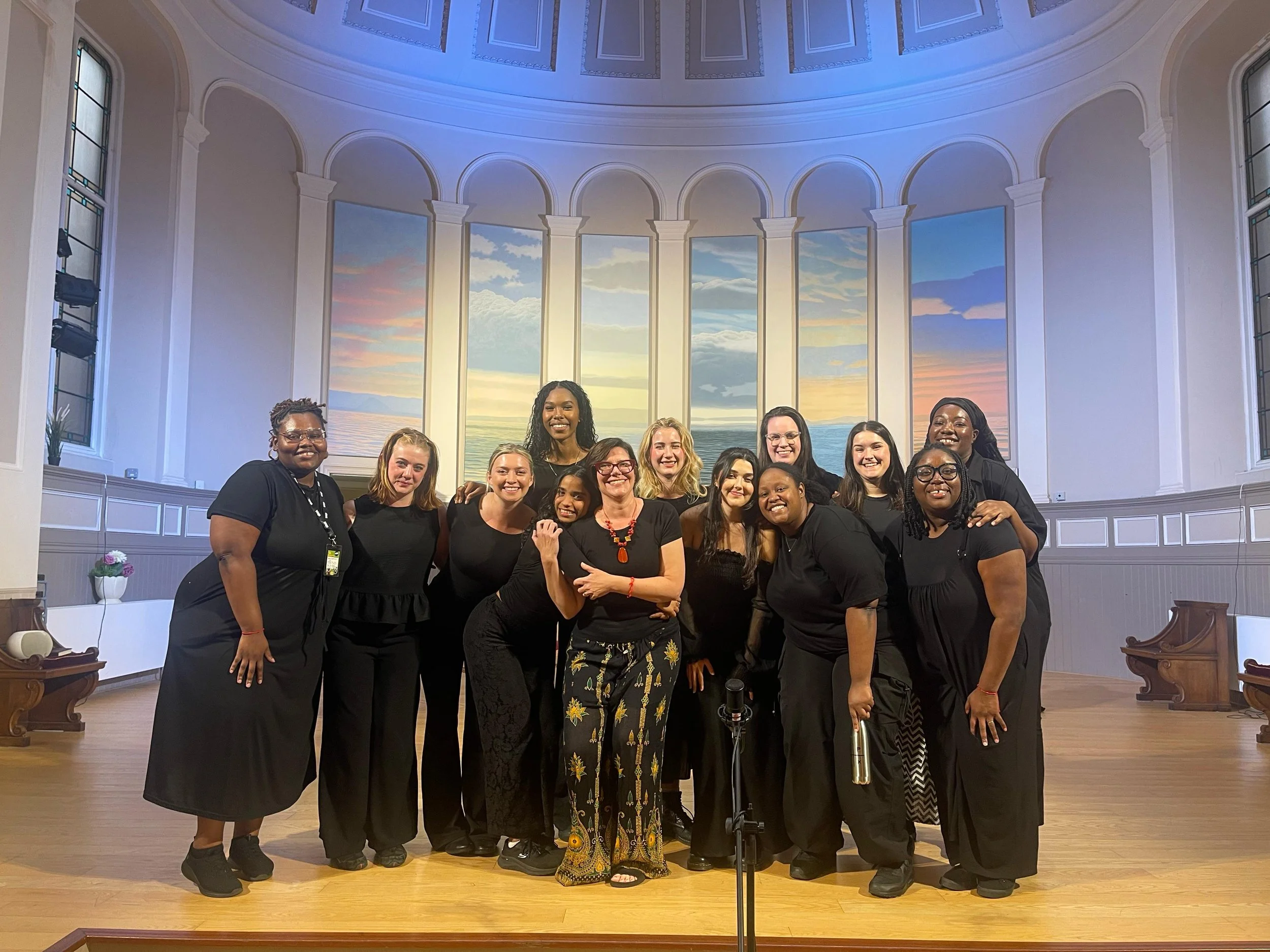Embodying the Collective Woman: My Experience with the Bible Women’s Project
Earlier this month, I had the opportunity to participate in the Edinburgh Fringe Festival with a show called The Bible Women's Project, a modern retelling of the stories of women in the Bible with personal stories of cast members woven into the show—similar to The Vagina Monologues.
A show that began ten years ago as a bold response to a man telling a woman it wasn't her place to interpret scripture has since become an impactful and timely feminist response to the oppression born within church walls. A piece so powerful that it's been banned from being performed in Catholic churches in Rhode Island.
For two hours, the audience is asked to wrestle with brutal truths: how we treat women when they make mistakes, like Eve; when and how women sacrifice for others, like Tabitha; and how often we side with patriarchy instead of with other women, as with Sarai. We revisited Hagar's story, how Sarah mistreated her, and how Bathsheba is remembered as the problem rather than as a woman whose life was interrupted by a king's power. Story after story revealed women whose lives have been ignored, distorted, or blatantly rewritten. These narratives force us to confront how women themselves can participate in harm, and they challenge us to reflect on what it means to be the collective woman, how we can do better for one another, and how the church and the world can do better for us.
Story after story revealed women whose lives have been ignored, distorted, or blatantly rewritten.
I first joined the show in 2015, running slides on the tech team. It wasn't until the following year, at the New York Fringe Festival, that I stepped into the cast. Being asked to return nine years later for the Edinburgh Fringe felt both like an honor and a divine assignment. Once I said yes, our cast and crew met monthly for a year, holding story circles and bringing forward the stories of women from the Bible. This process shaped the seventeenth version of the script—a brand-new debut of the show. True to its nature, the production is rewritten each time a new cast comes in, carrying fresh stories into the performance.
As cool as it is to do the fringe, it's far less glamorous than one would think; it's work. And a large part of your work comes from what happens when you're not on stage. It comes from networking, going to other shows to support, and working to get an audience, considering you're 1/37,000 shows. Amid the hustle, it became clear that this Fringe run was unlike any before. No matter how much we rehearsed or performed, the shows felt like a secondary focus. In time, what rose to the surface was something more profound: to be an example of what it means to be part of the collective woman and the power of her voice in today's climate.
Throughout our time in Edinburgh, much of our script felt like it was coming out of real life—echoes of things we were already hearing, saying, or having spoken back to us, making it clear that the collective woman wants to be heard. The women we encounter in the Bible are examples of this collective woman, and in every performance—whether in New England before our trip, or on the streets of Edinburgh—we noticed how the spirit of the collective woman is still being silenced, ignored, and disregarded.
In our show, we ask: What does it mean to tell others' stories? Is it our duty to do so? What happens to women's stories that are erased, or only told through the lens of patriarchy? Performing together—screaming, dancing, speaking on behalf of women like Mary Magdalene—we saw the reactions of audiences confronted with a group of women collectively raising their voices. It revealed that the collective woman has always taken care of us, and it is our responsibility to take care of her—and each other.
She includes the ruach, the feminine expression of God, the Holy Spirit, who God left with his people to lead us back to him.
Today, the idea of the collective woman feels more necessary than ever. She is not limited to our immediate circle. She extends to the mothers of Gaza watching their husbands be murdered and their children bombed, to women in Sudan losing children due to famine, to women in the United States whose families are torn apart by ICE raids as a result of some women in the collective who voted in favor of this reality. She includes the experiences of trans women who are dying at a rapid rate every day, she includes the space for Mordecai’s who lift her up and push her to speak, to act, to resist on behalf of her people. She includes nature, who labors to sustain us even as she herself is exhausted and exploited. She includes the ruach, the feminine expression of God, the Holy Spirit, who God left with his people to lead us back to him.
I am grateful to have been taught what it means to be part of the collective woman—to tell her stories, to be shaped by her experiences, and to carry her voice. To speak truth to power, to hold her when she cries, and to dance in her joy. This is the power and presence of the collective woman: she endures, she creates, she resists, and she loves—and in her, we find ourselves, and as we find ourselves through her, it is our job to teach others to do the same.

